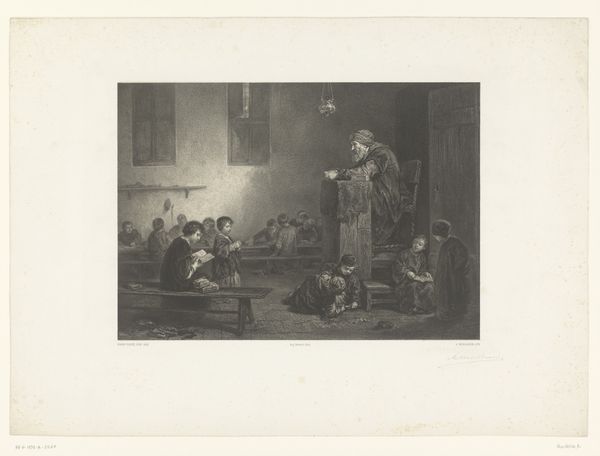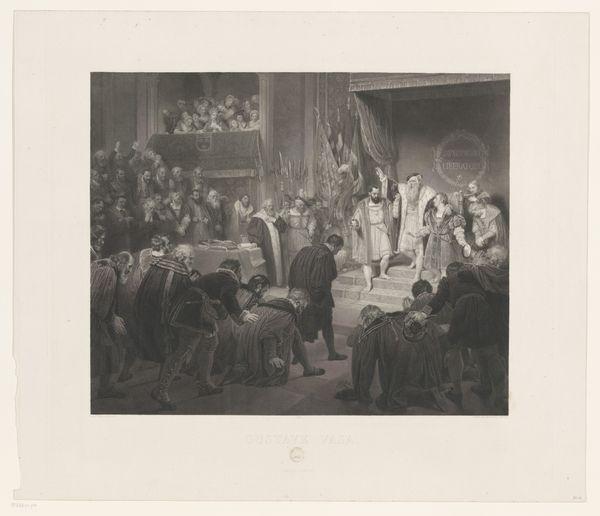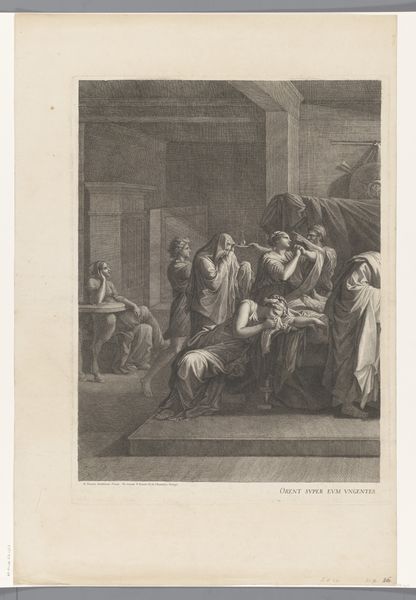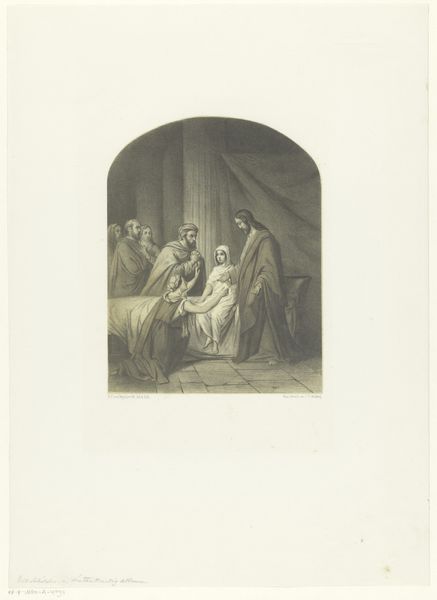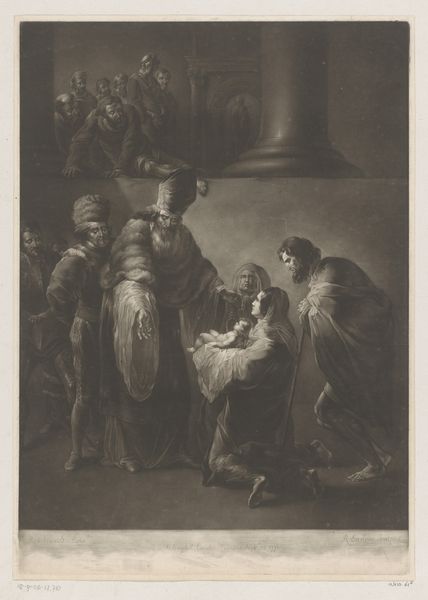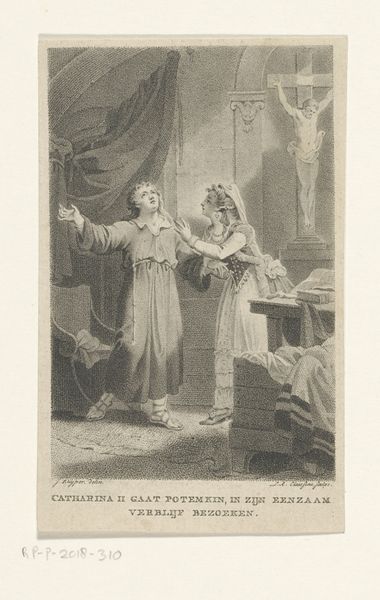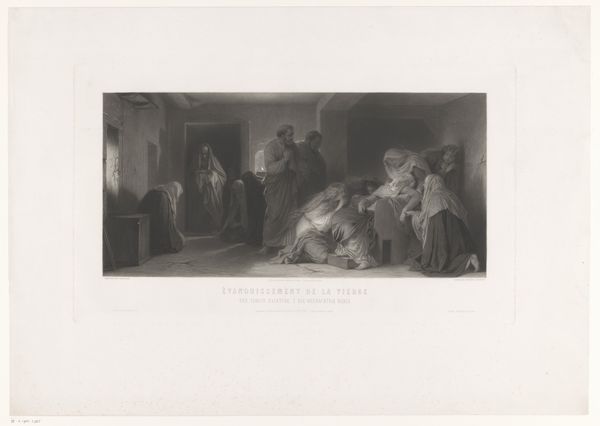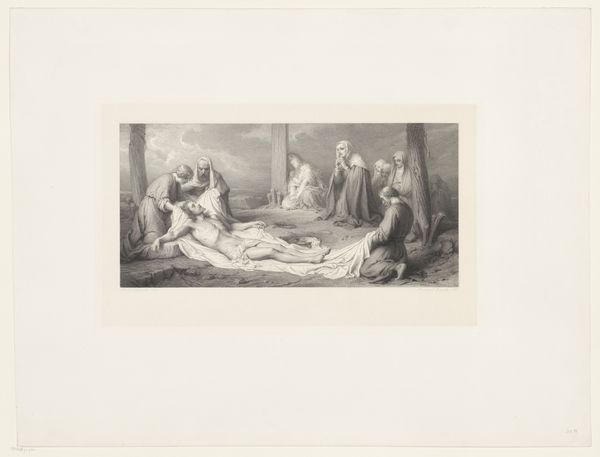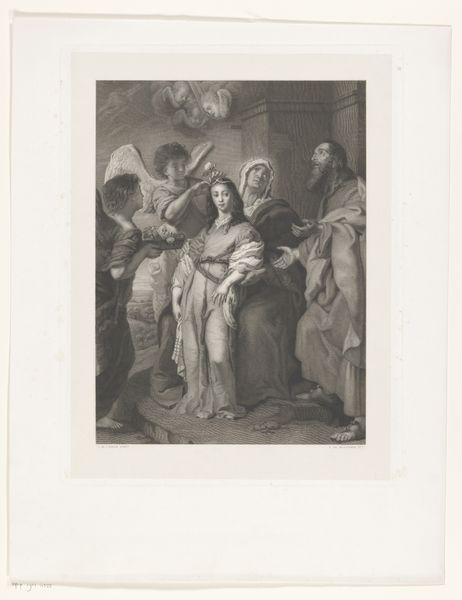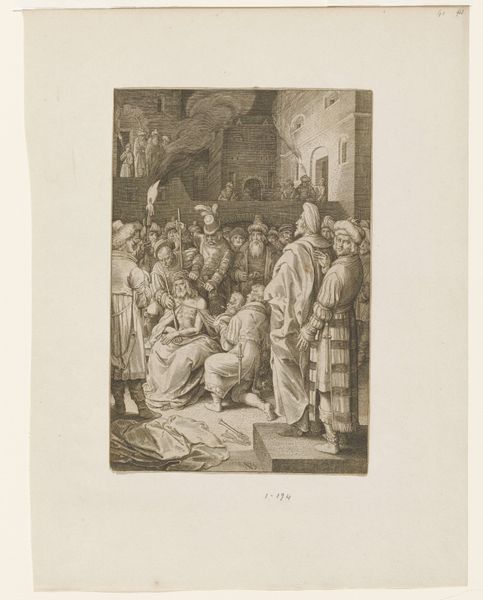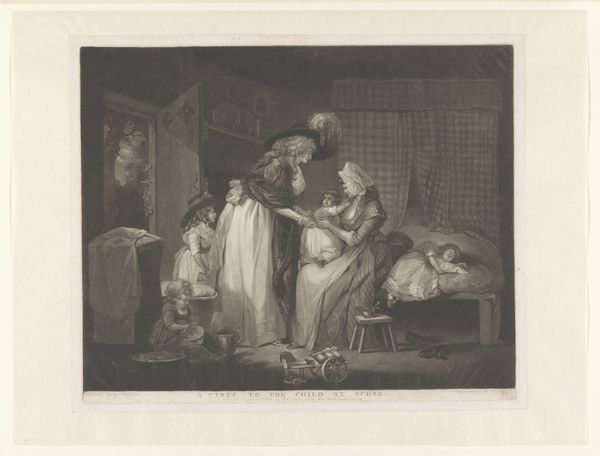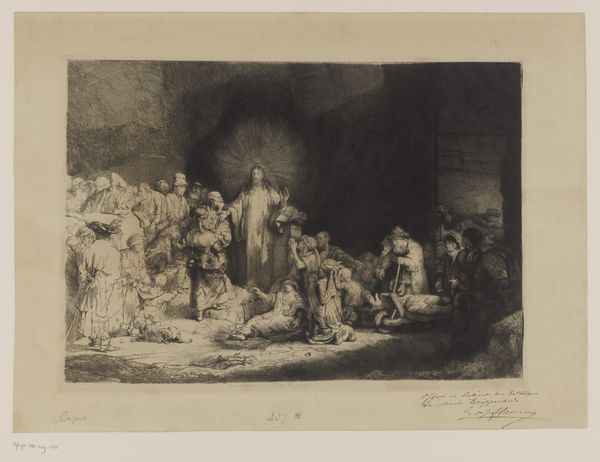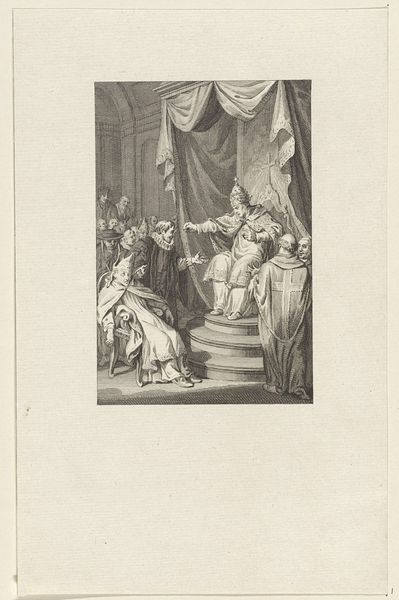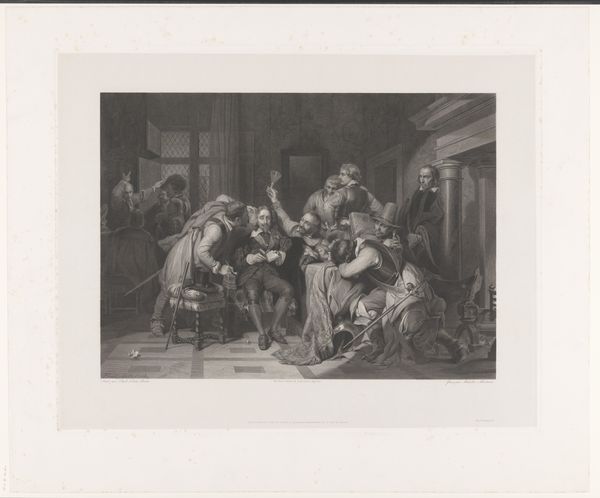
#
print photography
# print
#
figuration
#
history-painting
#
academic-art
Dimensions: height 602 mm, width 437 mm
Copyright: Rijks Museum: Open Domain
Zachée Prévost created this print of Saint Vincent de Paul sometime in the first half of the 19th century, using a technique called lithography. Lithography involves drawing an image with a greasy crayon onto a smooth stone, usually limestone, and then treating the stone so that ink adheres only to the drawn areas. The printmaker then transfers the image to paper. The texture and tone are achieved through the artist’s skilled manipulation of the crayon, allowing for nuanced shading and fine details. The resulting print possesses a unique character, distinct from both drawing and conventional engraving. Lithography democratized image-making, enabling the wider distribution of images like this one, at a time when industrialization was transforming society, and religious figures were often looked to for guidance. The relatively quick and inexpensive process allowed artists to reach a broader audience, offering moral instruction. This print therefore reflects a desire to engage with social issues through accessible imagery.
Comments
No comments
Be the first to comment and join the conversation on the ultimate creative platform.
